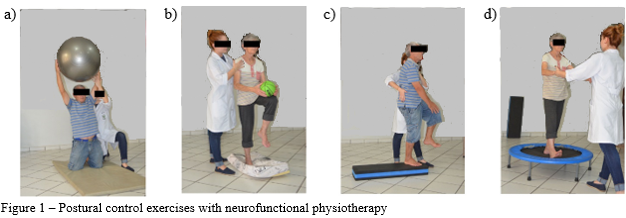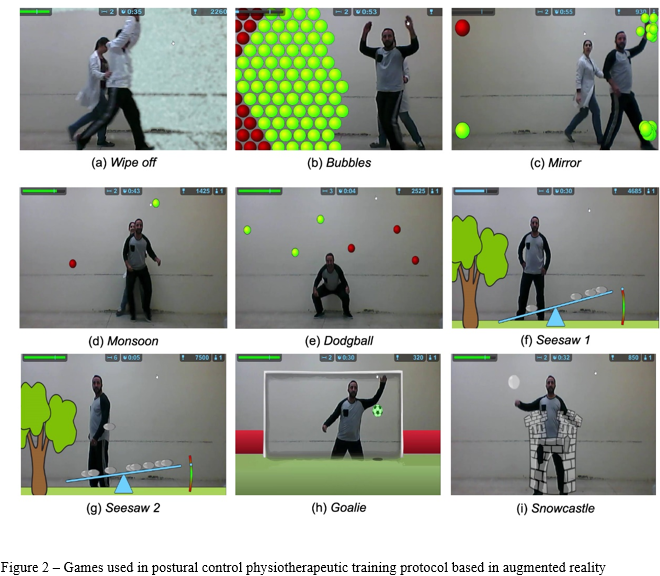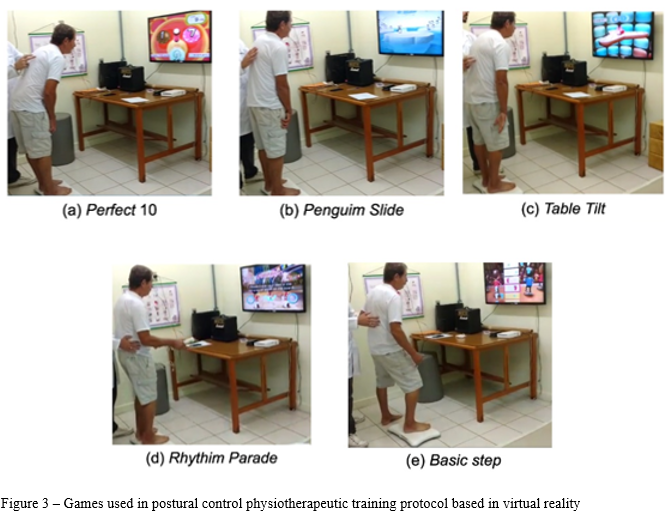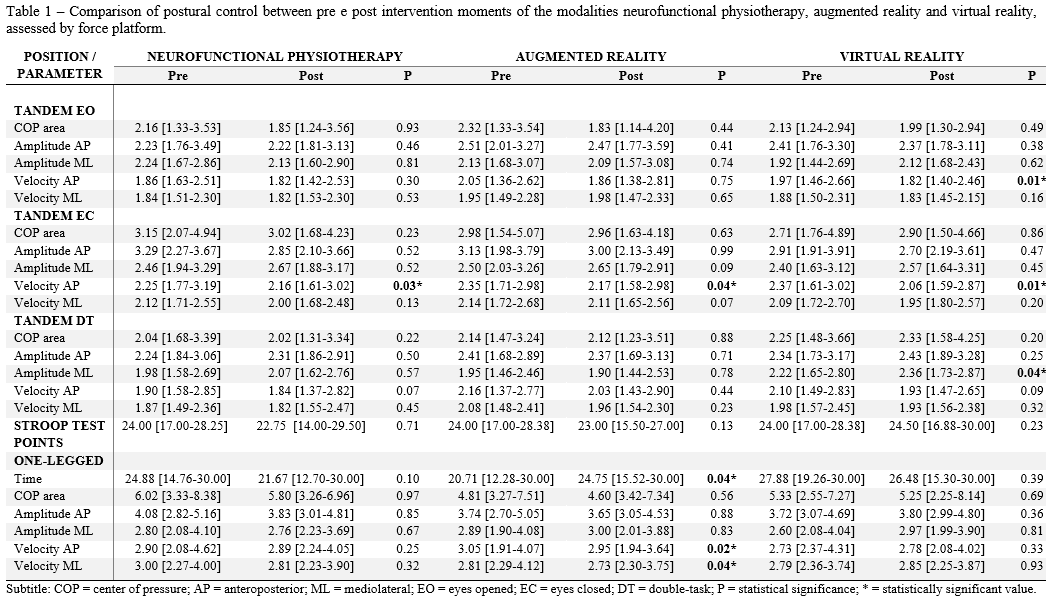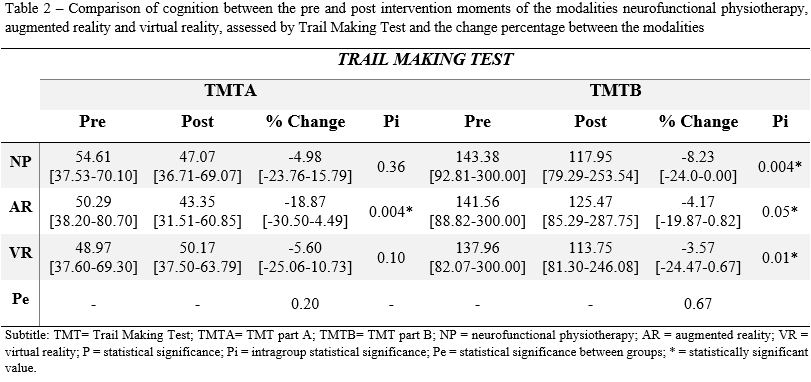Session Information
Date: Monday, September 23, 2019
Session Title: Physical and Occupational Therapy
Session Time: 1:45pm-3:15pm
Location: Les Muses Terrace, Level 3
Objective: To evaluate the immediate effect of augmented reality (AR), virtual reality (VR) and neurofunctional physiotherapy (NP) in postural control and cognition of patients with Parkinson’s disease (PD).
Background: NP is an indispensable part in the treatment of PD [1], which, when combined with AR and VR are promising technologies that can be used as therapeutic and ludic resources to improve the effectiveness of NP [2].
Method: 40 subjects from mild to moderate PD stages (24 males, 66±10 years) with no cognitive impairment were recruited for this randomized, crossover, blind clinical trial. Patients were submitted to one session of NP, one session of AR and one session of VR for 50 minutes each (7-days interval between them – Figure 1-3). Postural control was evaluated before and after each therapy using force platform in bipodal positions; tandem with eyes opened (EO) and eyes closed (EC); tandem with double-task (DT) associated with the Stroop test and, lastly, one-legged stance. We recorded: center of pressure area (COP) in cm2, anteroposterior (AP) and mediolateral (ML) displacement amplitude in cm and velocity in cm/s. Cognition was assessed using the Trail Making Test (TMT) parts A and B.
Results: There were improvements in postural control (pre vs post intervention) in the three modalities (Table 1): AP velocity decreased after AR [tandem EC 2.3[1.7-2.9] vs 2.1[1.5-2.9] P=0.04), one-legged (3.0[1.9-4.0] vs 2.9[1.9-3.6] P=0.02)], NP [tandem EC (2.2[1.7-3.1] vs 2.1[1.6-3.0] P=0.03)] and VR [tandem EO (1.9[1.4-2.6] vs 1.8[1.4-2.4] P=0.01), tandem EC (2.3[1.6-3.0] vs 2.0[1.5-2.8] P=0.01)]; ML velocity decreased after AR in the one-legged position (P=0.04); and permanence time in one-legged position increased in AR (Δ: 2.5[-0.2-6.9] P=0.04). There was also improvement in cognition (Table 2): TMTA’s execution time decreased after AR (-9.3[-15.7-1.9] P<0.01), and TMTB’s execution time decreased after the three therapeutic modalities (ΔNP: -7.7[-29.4-0.0] vs ΔAR: -4.6[-34.6-0.6] vs ΔVR: -4.9[-28.2-0.9] P>0.05). There were no differences between the interventions when considering the studied modalities.
Conclusion: The three treatment modalities improved postural control and cognition of the subjects with PD. Moreover, AR and VR generated similar immediate effects to NP on postural control and cognition in these patients.
References: 1. Mak MK, Wong-Yu IS, Shen X, Chung CL. Long-term effects of exercise and physical therapy in people with Parkinson disease. Nat Rev Neurol. 2017;13(11):689–703. 2. Santos SM, da Silva RA, Terra MB, Almeida IA, de Melo LB, Ferraz HB. Balance versus resistance training on postural control in patients with Parkinson’s disease: a randomized controlled trial. Eur J Phys Rehabil Med. 2017;53(2):173–83.
To cite this abstract in AMA style:
S. Smaili, H. Araújo, R. de Souza, T. da Silva, T. Nascimento, M. Terra. Immediate effect of the virtual and augmented reality and neurofunctional physiotherapy on postural control and cognition in patients with Parkinson’s disease: a randomized clinical trial [abstract]. Mov Disord. 2019; 34 (suppl 2). https://www.mdsabstracts.org/abstract/immediate-effect-of-the-virtual-and-augmented-reality-and-neurofunctional-physiotherapy-on-postural-control-and-cognition-in-patients-with-parkinsons-disease-a-randomized-clinical-trial/. Accessed July 18, 2025.« Back to 2019 International Congress
MDS Abstracts - https://www.mdsabstracts.org/abstract/immediate-effect-of-the-virtual-and-augmented-reality-and-neurofunctional-physiotherapy-on-postural-control-and-cognition-in-patients-with-parkinsons-disease-a-randomized-clinical-trial/

